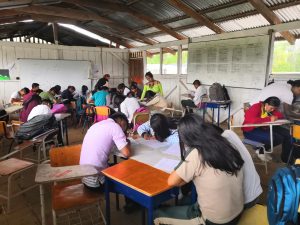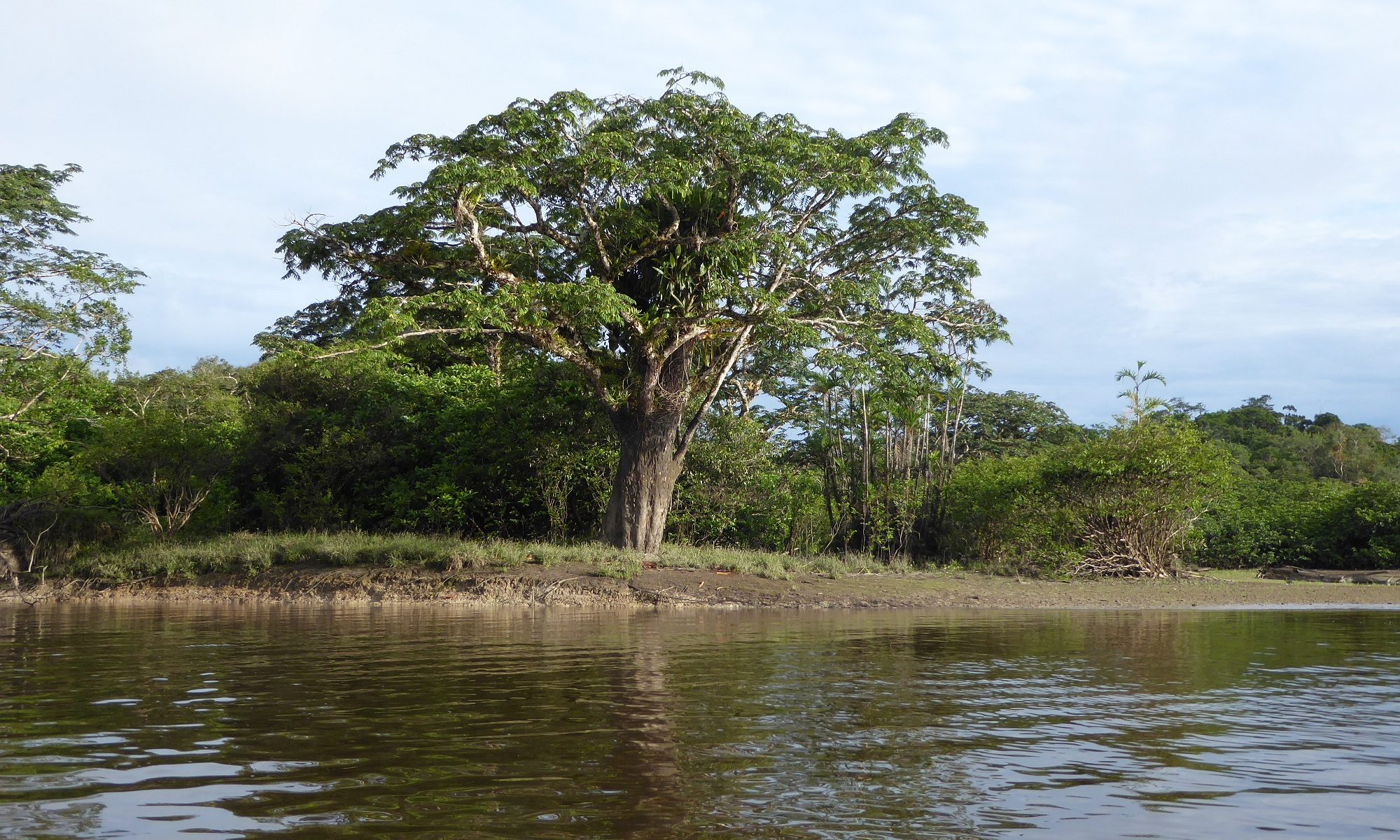Text: Tuija Veintie
On Tuesday, 8 October, all schools in Ecuador suspend their classes to guarantee the safety of their students, announced the Ministry of Education of Ecuador. In Pastaza province the classroom doors in schools and at the Amazon State University (UEA) have stayed closed for several days, from Thursday 3 October. Going to classes would be difficult, and possibly dangerous, because transportation in Puyo and around the province is paralysed by roadblocks and demonstrations. The demonstrations started last week after President Lenin Moreno had announced the paquetazo, a package of economic measures to reduce the fiscal deficit of the country.
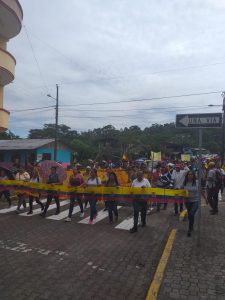
The paquetazo includes tax and labor reform as well as elimination of fuel subsidies. As an immediate effect of these reforms, the fuel price rose with 100% overnight. Ecuadorian transport unions declared a national strike starting on Thursday, 3 October. The strike ended all bus, truck and taxi transportation in the country. Moreover, the bus, truck and taxi drivers blocked the roads in the main cities of the country stopping all motor traffic. The transport unions ended their strike on Friday 4 October in the evening, but civil society organisations, including the Confederation of Indigenous Nationalities of Ecuador (CONAIE), Confederation of the Ecuadorian Amazonian Indigenous Nationalities (CONFENIAE), and the United Workers Front (FUT) continue demonstrations against paquetazo.
Transportation sector is not the only one affected by the economic measures. The tax and labor reform affects all the workers, and doubling of fuel price inevitably raises the prices of public transportation as well as transportation of merchandise. Transportation costs have an effect on the everyday living costs, such as bus tickets and groceries. Increase in the everyday living costs further complicates life particularly for low-income households, such as many of those young Kichwa and Shuar high school students who we have interviewed in different communities in Pastaza. Many of these students walk long distances to school and back as they do not have 25 cents for the bus. Several of them do not have any breakfast or lunch because their family does not have food at home. How the paquetazo will affect lives of these students and many others in Ecuador?
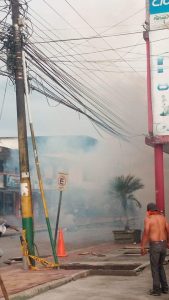
Thousands of Ecuadorian people are worried and have joined in the demonstrations against paquetazo, crowding the streets of the main cities in the country. In some cases, the demonstrations soon lead into violent confrontations between the protesters and the riot police. In Guayaquil, the largest city in the cost, some protesters ran riot looting shops and pharmacies. As a response, President Moreno declared a state of emergency, limiting people’s rights and empowering police and army to use force to clear the protests and arrest protesters. Thereafter, the police and military have arrested hundreds of people, and used tear gas and military vehicles to disperse demonstrators in various locations.
One of the many confrontations between military and the Indigenous demonstrators took place in the Shuar territory in Pastaza. During last weekend, people from several communities concentrated in Tsurakú to block the main road between Puyo and Macas. Early on Sunday morning, the military fired tear gas and rubber bullets on protesters. The protesters kept their resistance.
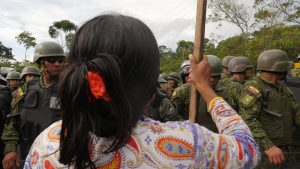
Earlier last week, before the demonstrations broke out, four of our researchers were conducting field study in Kumay, a Shuar community near Tsurakú.
